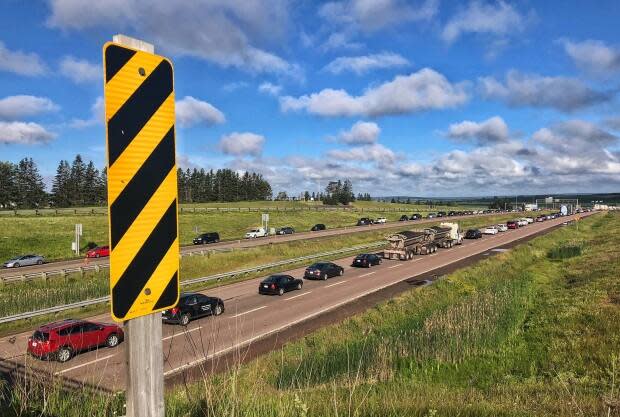What Nova Scotians need to know about travelling within Atlantic Canada

Nova Scotia is opening its borders to other parts of Atlantic Canada at 8 a.m. AT today, but the rules are very different from the Atlantic bubble that allowed people to criss-cross borders freely last summer.
Each province has set its own entry requirements. While New Brunswick has been open since last week, Newfoundland and Labrador will welcome Nova Scotians starting today and P.E.I. won't open to regional travellers until Sunday. All three provinces ask that people fill out forms in advance.
Heading to New Brunswick
The New Brunswick border opened to Nova Scotians on June 16 at midnight, as it did to people from across the country. Visitors from within the Atlantic region won't need to self-isolate or be tested at the border.
Like other travellers, Nova Scotia residents are required to register to enter New Brunswick and can do so online or by phone. The province is recommending people fill out the form five days prior to their entry.
While registering and at the border, people are advised to have on hand a valid photo ID, proof of Nova Scotia residency as well as either electronic or printed copies of their travel registration. If that's not possible, people should bring their registration number.
More details about entering New Brunswick are available here.
Also, keep in mind that Nova Scotians returning home after visiting New Brunswick could be subject to modified quarantine depending on their vaccination status.
P.E.I. opens to N.S. June 27
Starting today, people from Atlantic Canada who previously applied to travel to P.E.I., such as seasonal residents, can go to the island without self-isolating. However, that only applies to people who qualified through certain travel streams.
But starting June 27, all fully or partially vaccinated Nova Scotia residents can travel to P.E.I. without any self-isolation, but they must apply for a "P.E.I. pass" first.
People who have been vaccinated for 21 days or more can fill out an online form in advance of their visit. It's supposed to speed up the entry process at borders. The provincial website is warning there is currently a large volume of applicants. People are advised to apply a week or two before their arrival.
The form requires people to upload a photo of two IDs as well as proof of their vaccination status. However, people should black out unneeded private details before uploading images of their IDs.

Once people are approved, they can visit P.E.I. numerous times with the same pass. Approved travellers must bring their pass with them as well as their photo IDs.
People who have been visiting Nova Scotia for more than 14 days can also apply, provided they haven't contracted or experienced symptoms of COVID-19.
Anyone arriving in P.E.I. should be prepared to be tested at border checkpoints. The province is advising that it will test two people per household with a rapid test that uses a lower nasal swab. The province will only call people who test positive and it said those individuals should hear within two hours.
More information on P.EI.'s rules is available here. If people are driving to P.E.I., New Brunswick's entry form may be required as well.
Travelling to Newfoundland and Labrador
Anyone from Atlantic Canada arriving in Newfoundland and Labrador starting today will not be required to self-isolate or be tested. They will not be required to show proof of vaccination either.
However, as with New Brunswick and P.E.I., visitors must fill out a travel form in advance.
To gain entry, people must not have any COVID-19 symptoms, not have been in close contact with anyone with COVID-19 or have left the region in the last 14 days.
Further details on Newfoundland and Labrador's rules can be found here.
MORE TOP STORIES

 Yahoo Movies
Yahoo Movies 